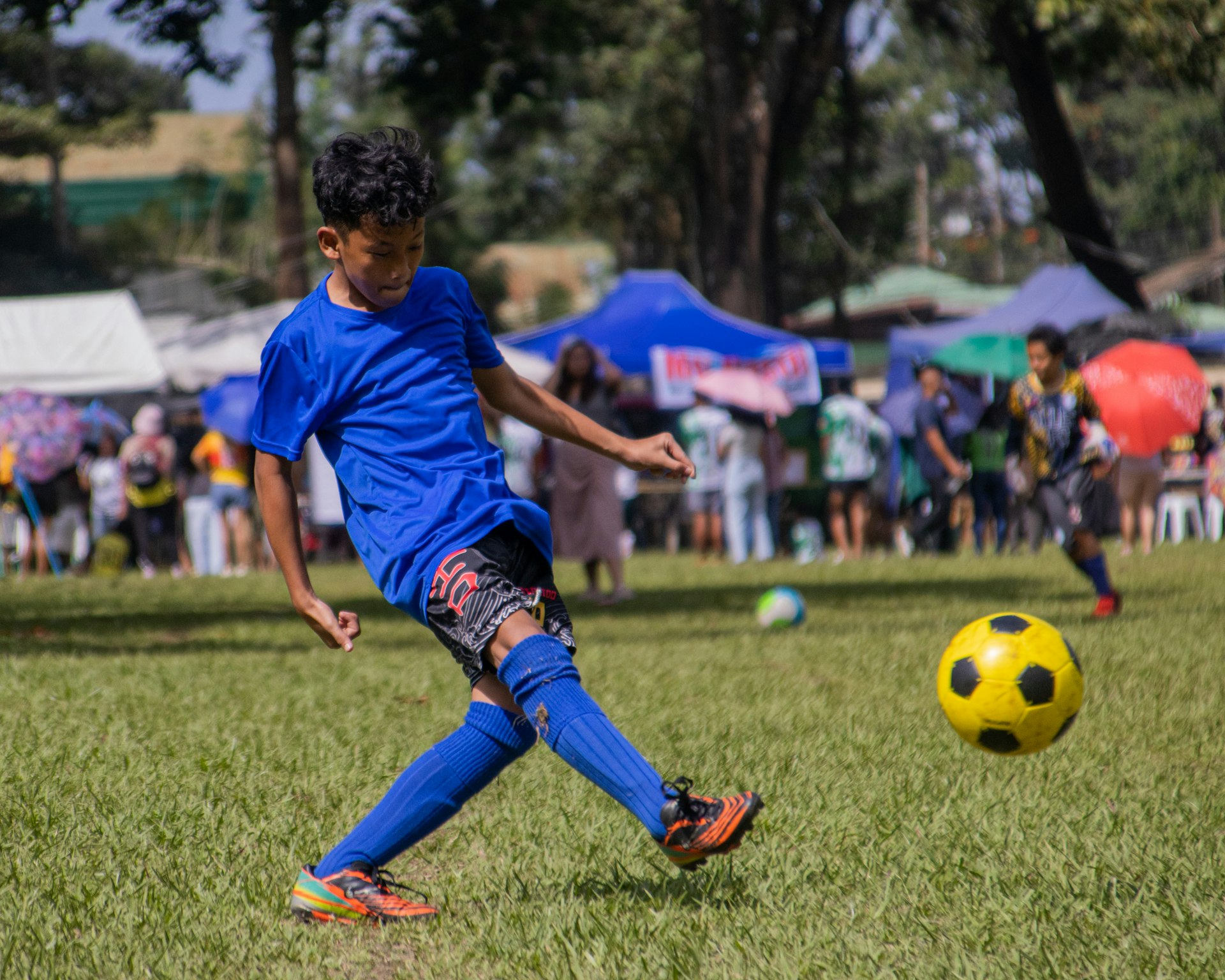The Next Evolution: Personalized Sports Performance Through Genetic Testing

Photo by Daniele Bissoli on Unsplash
The Transformation of Sports Performance Through Genetic Testing
In recent years, genetic testing has emerged as a pivotal tool in the evolution of sports performance, promising a future where training, recovery, and injury prevention are tailored to the unique genetic makeup of each athlete. As research matures and technology advances, the integration of genetics into sports science is creating new opportunities and challenges for athletes, coaches, and the broader sports industry [1] [3] .
Understanding Genetic Testing in Sports
Genetic testing in sports involves analyzing an athlete’s DNA to identify specific genetic markers that influence performance traits such as muscle composition, endurance, strength, and recovery capability. This process typically uses a non-invasive saliva or blood sample. An athlete’s results can reveal predispositions to excel in power or endurance events, susceptibility to certain injuries, and optimal nutritional strategies [4] .
Companies and medical centers specializing in genomic testing often provide comprehensive panels examining key genes like
ACTN3
(linked to fast-twitch muscle fibers) and
ACE I/D
(associated with cardiovascular endurance)
[2]
. The information empowers athletes to adjust their training, rest, and nutrition for maximum results.
Benefits of Genetic Testing for Athletes
Personalized Training Programs: Genetic insights allow coaches to design training regimens that match an athlete’s innate strengths and weaknesses. For example, an individual genetically predisposed to endurance can focus on aerobic conditioning, while those with a power profile may emphasize high-intensity strength work [1] .
Injury Prevention and Management: By identifying genes that increase susceptibility to tendon, ligament, or muscle injuries, athletes can proactively modify workouts and recovery routines. For instance, someone at higher risk for stress fractures can incorporate bone-strengthening exercises and targeted rest periods [4] .
Nutritional Optimization: Some genetic variations affect how the body metabolizes nutrients. Tailoring diets based on genetic data can enhance energy utilization, recovery, and overall health. For example, an athlete with a genetic tendency toward slower fat metabolism might benefit from a carbohydrate-focused diet [1] .
Mental Resilience: Genes influencing stress response and cognitive function are also under investigation, with the potential to inform psychological preparation and coping strategies for competitive environments [1] .
Implementation: How Athletes Can Access Genetic Testing
For athletes interested in leveraging genetic testing, several steps are involved:
- Research Certified Providers: Seek out reputable hospitals or companies with certified genomic testing programs. For example, Bumrungrad International Hospital is recognized as a Genomic Medicine Provider and offers comprehensive sports genomic panels. Athletes may consider contacting internationally certified centers or consulting with sports medicine practitioners for referrals [5] .
- Schedule a Consultation: Genetic testing should be performed under professional guidance to ensure accurate interpretation and ethical use of data. Athletes can start by scheduling a consultation with a sports physician or certified genetic counselor.
- Sample Collection: The most common method is a saliva swab, but some tests may require a blood sample. The process is quick and non-invasive.
- Analysis and Interpretation: Results are typically available within a few weeks. A qualified specialist will review the findings and help develop a personalized action plan that may include adjustments in training, diet, and recovery protocols.
If you are unable to access services locally, consider searching for “sports genetic testing providers” or “genomic medicine centers” in your region. Universities with sports science or medical genetics programs may also offer or recommend testing services. Always verify the credentials and reputation of any provider before proceeding.
Examples and Case Studies
Elite athletes and sports teams are increasingly incorporating genetic testing into their routines. For example, some professional soccer teams in Europe have adopted genomic screening to predict injury risk and customize training loads throughout the season, resulting in fewer injuries and improved recovery times [1] .
Another case involves endurance athletes who, based on genetic insights, adjusted their carbohydrate intake and recovery strategies to reflect their unique metabolic profiles. These athletes reported improved performance and reduced fatigue during competition periods.
Challenges and Ethical Considerations
Despite the promise of genetic testing, several challenges remain:

Photo by Joshua Hoehne on Unsplash
- Scientific Limitations: Current research identifies over 200 genetic polymorphisms linked to sports performance, but the predictive value for most individuals remains limited. Environmental factors, training history, and psychological elements still play a major role [3] .
- Methodological Issues: Many studies lack large, diverse cohorts and robust measurement of athletic phenotypes, making broad application of findings difficult. The field is evolving, with new analysis tools like genome-wide association studies (GWAS) improving reliability [3] .
- Ethical and Privacy Concerns: Athletes and organizations must consider data privacy, informed consent, and the potential for genetic discrimination. International sports bodies are developing ethical frameworks to guide the use of genetic information [1] .
To address these issues, it is critical to seek professional guidance, understand the limitations of current science, and adhere to evolving ethical standards. Athletes should never feel pressured to undergo testing and should have full control over their genetic data.
Future Directions in Sports Genomics
The future of genetic testing in sports performance is characterized by:
- Multi-Omics Integration: Combining genomics with other biological data (e.g., proteomics, metabolomics) for a more comprehensive view of athlete health and performance [1] .
- Gene-Environment Interaction Studies: Greater understanding of how training environments and lifestyle factors interact with genetic predispositions to shape performance outcomes [1] .
- Improved Regulatory Oversight: Development of international standards for the ethical and effective use of genetic testing in sports, protecting athlete rights and promoting best practices [1] .
These trends will likely lead to an era where athletic development is more personalized, data-driven, and holistic. Athletes can expect continued advances in technology and research, improving both performance and safety.
Practical Steps for Athletes and Coaches
If you are considering genetic testing for sports performance, here are actionable steps:
- Consult with a sports medicine specialist or genetic counselor about the benefits and limitations of genetic testing for your specific goals.
- Research certified providers or genomic medicine centers in your location. Use search terms such as “certified sports genetic testing providers” or “genomic evaluation for athletes.”
- Ensure that the provider follows ethical standards, offers clear data privacy policies, and provides professional interpretation of results.
- Combine genetic insights with ongoing performance assessments, such as physiological testing and injury monitoring, to create a holistic athlete development plan.
- Stay informed about evolving research and best practices by following updates from reputable organizations, academic journals, and sports medicine societies.
Summary
Genetic testing is poised to revolutionize sports performance by enabling personalized training, targeted injury prevention, and nutritional optimization. While the science is still catching up with its promise, the integration of genetics with traditional training and medical care is already providing benefits for athletes at all levels. Those seeking to leverage genetic testing should proceed with professional support, ethical awareness, and a commitment to ongoing learning.
References
- Dr. Omics (2025). The Future of Sports: Emerging Trends in Genetic Testing for Athletes.
- Panagiotou, N. (2025). Athlegenetics: Athletic characteristics and musculoskeletal adaptation.
- Varillas-Delgado, D. et al. (2022). Genetics and sports performance: the present and future in elite athletes.
- RobGenes (2024). Genetic Testing for Sports Performance: Unlock Your Potential.
- Bumrungrad International Hospital (2024). Genomic Evaluation in Sports Performance: Unlocking Potential.
MORE FROM dealdetectivepro.com













